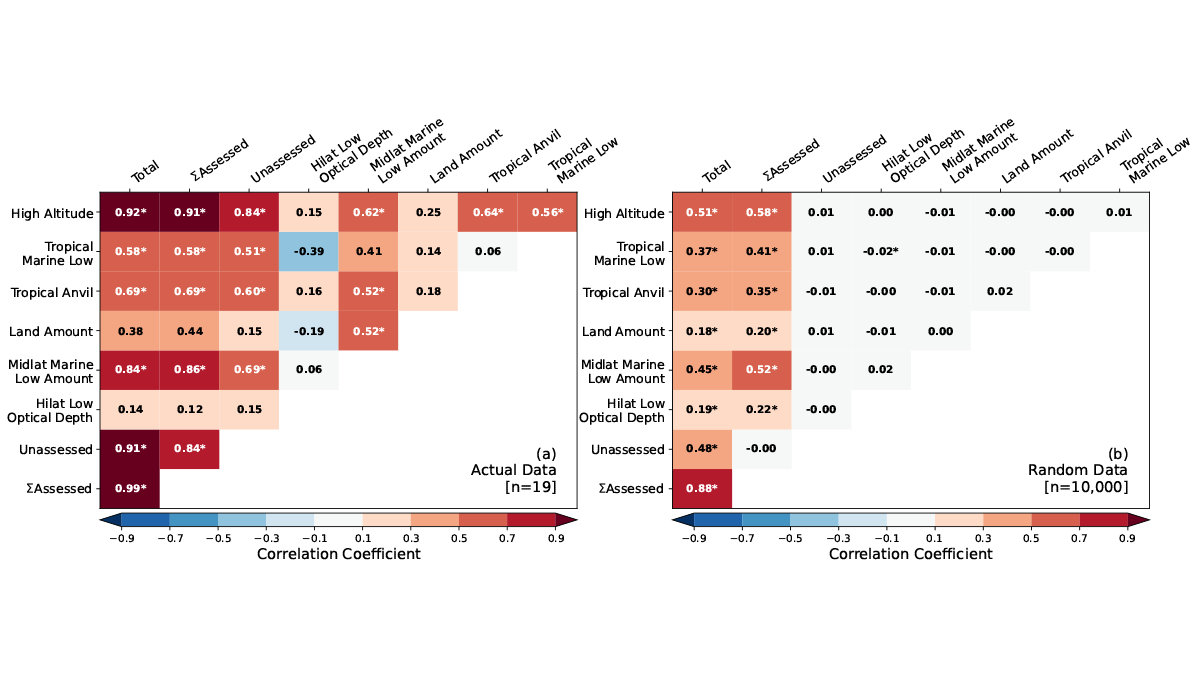Editors’ Highlights are summaries of recent papers by AGU’s journal editors.
Source: Journal of Geophysical Research: Atmospheres
As climate warms, clouds change. These changes affect the energy balance of the Earth, causing feedback to the warming. Cloud feedback has been known to cause a large spread of climate sensitivity of models to external forcing.
Zelinka et al. [2022] found that models with smallest feedback errors relative to benchmark values generally have moderate total cloud feedbacks. Models tend to achieve large positive total cloud feedbacks by having several cloud feedback components that are systematically biased high rather than by having a single anomalously large component, and vice versa. Large cloud feedback is found to lead to a high equilibrium climate sensitivity (ECS), but high ECS can emerge even with moderate cloud feedbacks. It was also found that more skillful simulation of mean-state cloud properties does not guarantee more skillful simulation of cloud feedbacks.
Citation: Zelinka, M. D., Klein, S. A., Qin, Y., & Myers, T. A. (2022). Evaluating climate models’ cloud feedbacks against expert judgment. Journal of Geophysical Research: Atmospheres, 127, e2021JD035198. https://doi.org/10.1029/2021JD035198
—Minghua Zhang, Editor in Chief, Journal of Geophysical Research: Atmospheres

